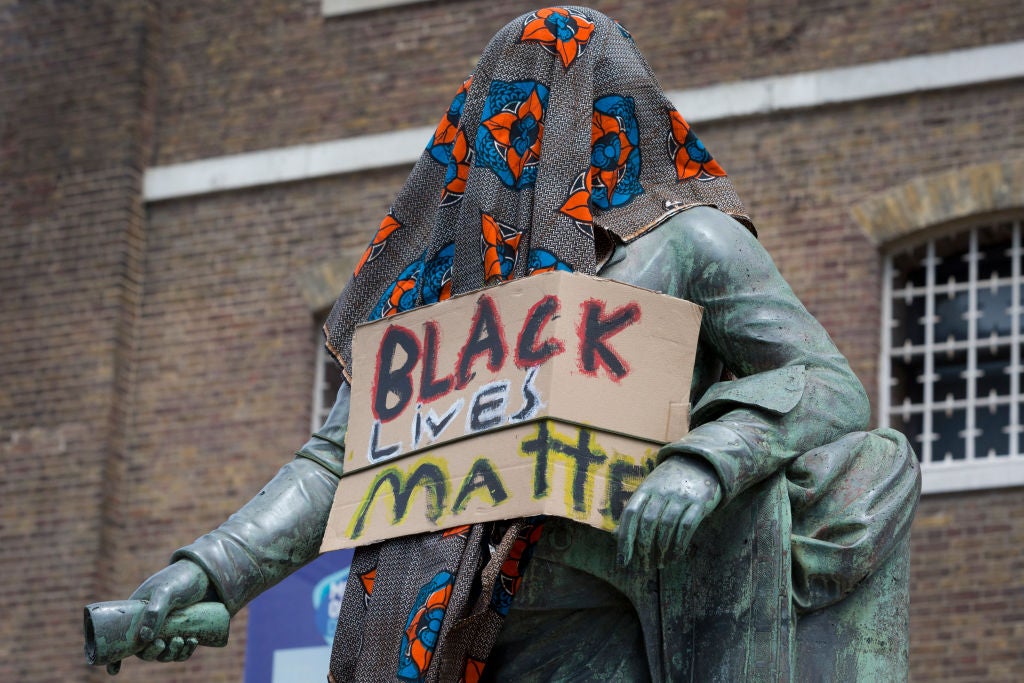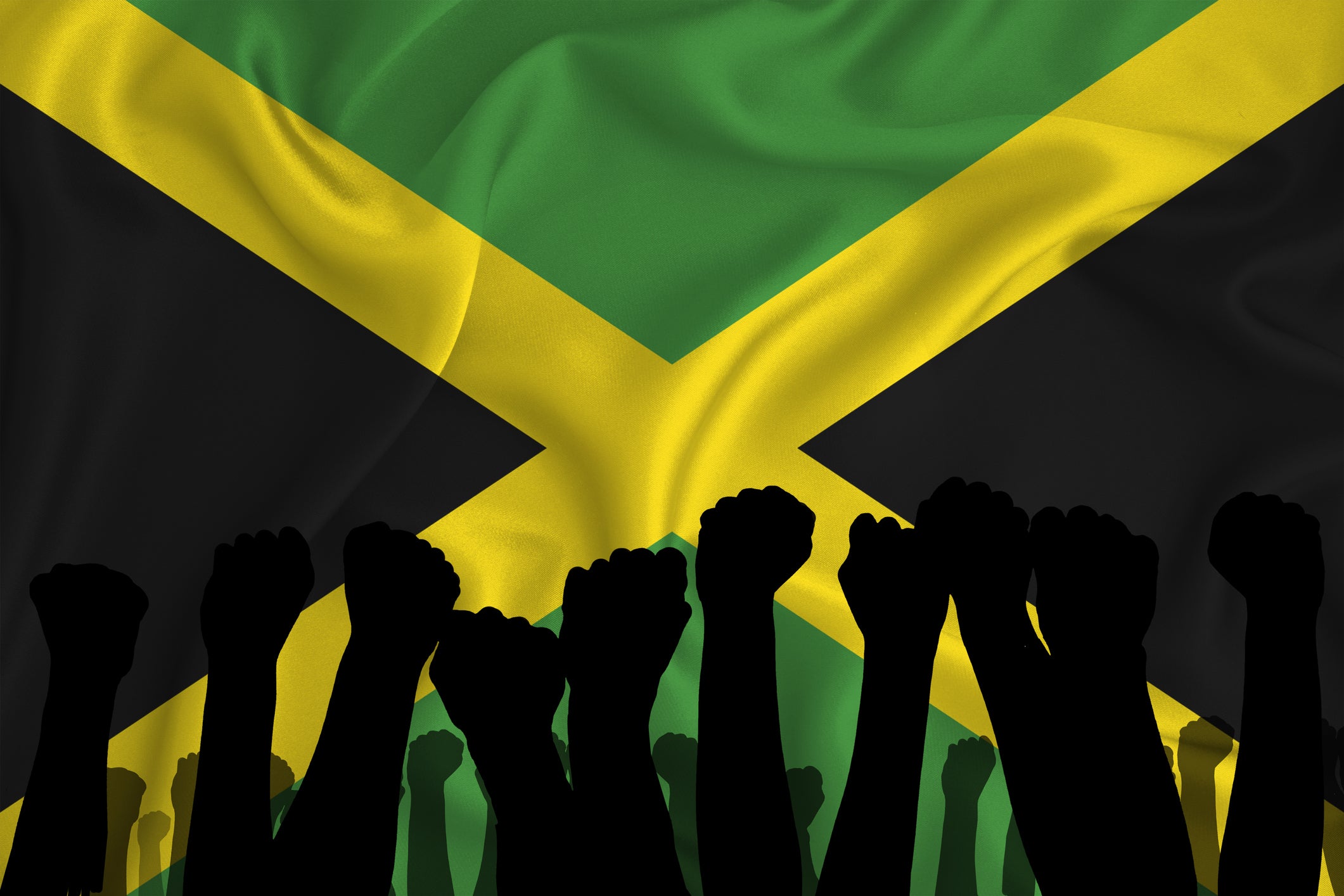The social unrest in the United States sparked by the horrific death of George Floyd at the hands of a white Minneapolis police officer has also set off protests around the world, including multiple islands across the Caribbean. While some have questioned why Caribbean nationals should concern themselves with American problems, there are definite parallels between the two regions.
After all, it was in the Caribbean that the model of chattel enslavement as an economic system for profit generation and extraction was developed and implemented in the 1600s. This system legally classified all Black people as property to be bought, sold and exploited. This system was subsequently expanded beyond the Caribbean when enslaved Africans arrived in the United States. The wealth of America was built on the backs of their forced labor.
The false ideas that Black people are not human and that Black lives are dispensable was created by this slavery system and has permeated communities for centuries. It is that idea that allowed a police officer to kneel on George Floyd’s neck for eight minutes and forty-six seconds.
The Caribbean, a formerly colonized region of more than 25 countries, is still wrestling with its own lingering issues of classism, colorism, and racism. However, the ideals of togetherness and sentiments of being “one people” that are widely celebrated throughout island nations often overshadow these deep rooted issues, which stem from the eras of slavery and colonialism.

“The Black Lives Matter movement is not just about Black lives in the United States; it’s not just about Black lives in the UK, it’s Black lives, period,” said Alex Downes, a 30-year-old Barbadian who launched the Nelson Must Go campaign.
In the online petition launched on Change.org, Downes has reignited the decades-long fight for the removal of the statue of Admiral Lord Horatio Nelson—a British naval commander and slavery supporter. His statue sits in the heart of Barbados’ capital city Bridgetown in what’s known as Heroes Square.
“You know it blows my mind because you have a guy who, by all accounts, was against the abolition of slavery and yet you have him in National Heroes Square,” Downes tells ESSENCE.
The petition now has over 11,000 signatures and Downes has written an open letter to the office of Barbados Prime Minister, Hon. Mia Mottley. In addition to detailing thoughts in support of the statue’s removal, it points out that the fight against race based oppression and its symbols is a collective one that has long been shared by the Caribbean and the United States. According to Downes, the office of the Prime Minister has received the letter and confirmed that it is up for consideration.
“The Black Lives Matter movement is not just about Black lives in the United States; it’s not just about Black lives in the UK, it’s Black lives, period.” — Alex Downes
From Bridgetown to Port of Spain, Kingston to Castries, thousands have taken to the streets in countries throughout the Caribbean in similar shows of solidarity, calling for an end to racial injustice and systemic racism.
In Jamaica, where police officers often face little accountability and the people impacted are typically poor or working class and of darker skin tone, there have been protests in solidarity with the Black Lives Matter Movement that also serve as a call out of the complex issues of classism and colorism on the island.
In more racially diverse islands like Trinidad & Tobago, demonstrations in the U.S. have started difficult conversations about race, class and colorism. “My entire life I’ve seen darker skinned people marginalized in T&T while light skinned Black people like me and other ethnicities with light skin and straight hair, given more access and privilege,” Gillian Goddard, a Black small business owner, said.
“This is not just about Minneapolis. This is about every woman and every man, every Black person on this planet.” — Professor Sir Hilary Beckles
Goddard recently pulled her products from local pharmacy chain, Starlite Group Ltd. She says online remarks by the managing director Gerald Aboud defending racism, as well as implying that Black people are thieves and violent, could not be tolerated.
“I think every action we take contributes to a culture,” Goddard said. “I took a stance that is not common in Trinidad & Tobago, but part of a lot of activity of change.”
Over in St. Vincent & The Grenadines, Marlon Joseph, co-founder of Solidarity SVG, says that they started the organization over a year ago to contribute to the global fight against injustice. After what took place in Minneapolis, Joseph says this is a crucial time for organizations like his to show support.
“The George Floyd incident has really become a watershed moment,” he said. “We have a moral obligation to our brothers and our sisters because we can understand that these are struggles that we’ve fought and we are fighting in many different ways.”
“There have been what I call ‘a flood of Floyds,'” Professor Sir Hilary Beckles, Historian and Vice-Chancellor at The University of the West Indies (UWI), told ESSENCE. “Marcus Garvey spoke about that. Stokely Carmichael, who is Trinidadian-American, spoke about that. Malcolm X—whose father Earl Little was an organizer for Marcus Garvey’s Universal Negro Improvement Association (UNIA), and whose mother, Louise Helen Norton Little, originally from Grenada, served as the national recording secretary for UNIA—spoke about that. Today, Congresswoman Yvette Clarke in Brooklyn, New York, the daughter of Jamaican immigrants, is always speaking about these kinds of matters. All of those persons with a Caribbean background spoke about those issues.”
Beckles, who is at the forefront of the region’s slavery reparations campaign, underscored the role that Caribbean people have always played in the global Black liberation struggle. “This is not just about Minneapolis. This is about every woman and every man, every Black person on this planet,” he said.
The Caribbean region just as the United States, will only be able to truly realize the ideals of togetherness when conversations are had and actions are taken to fully address racial inequities and discrimination. The movement ignited across the Caribbean by the uprisings in the United States reflects the interconnected history of the two regions. It also speaks to the sensibilities to systemic racism, colonialism and white supremacy that have always been there, but are now finding a renewed sense of purpose in solidarity.
